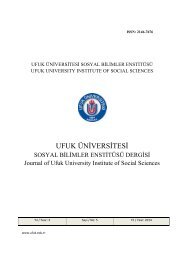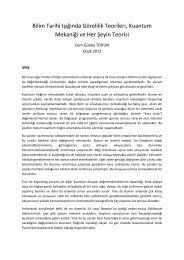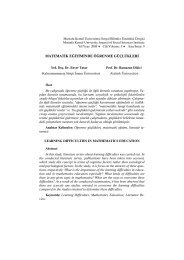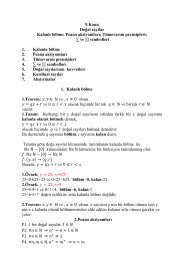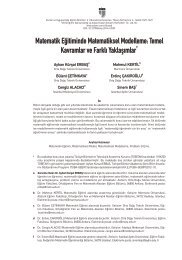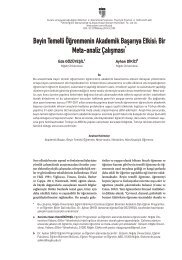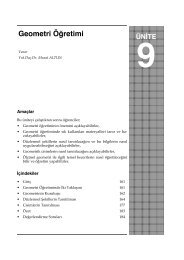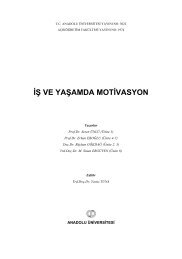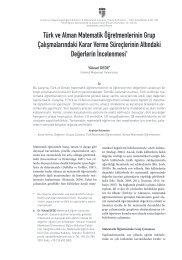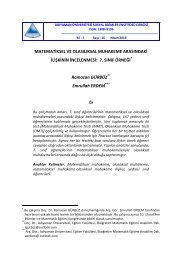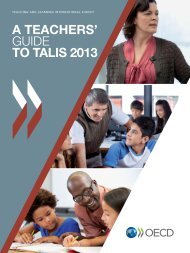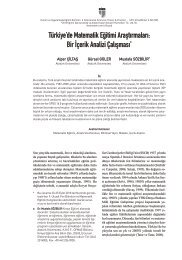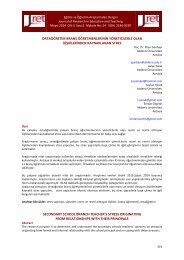NEWSLETTER
2015-12-98
2015-12-98
Create successful ePaper yourself
Turn your PDF publications into a flip-book with our unique Google optimized e-Paper software.
Young Mathematicians‘ Column (YMCo)<br />
Explain Your Thesis in Three Minutes<br />
Marie Kreusch (Université de Liège, Belgium)<br />
Think about your research. Have you ever tried to explain<br />
it to the average person in the street? You have to<br />
use simple words, catch their attention and try to tell a<br />
story with a good plot and hopefully a happy ending. It is<br />
not that easy! Many PhD candidates and young doctors<br />
each year rise to the challenge and explain their research<br />
in three minutes to non-specialist audiences.<br />
One of the recent initiatives of universities to promote<br />
research, and PhDs in particular, is the creation of<br />
the following contests: “Three Minute Thesis (3MT®)”<br />
and “Ma thèse en 180 secondes (MT180)”. 1 Each participant<br />
(PhD candidate or young doctor) gives in English<br />
or French (depending on which contest) a generalised,<br />
clear, concise and convincing talk on their thesis in three<br />
minutes. The exercise develops effective presentation<br />
and communication skills.<br />
I met Adrien Deliege, a PhD candidate in mathematics<br />
at the University of Liège (Belgium). He won the<br />
international final contest MT180 in Paris on 1 October<br />
2015. This young mathematician is studying wavelet<br />
transforms and applies this method to climate data such<br />
as temperature or time series. Here are his impressions<br />
of the competition and his answers to my questions.<br />
How did the idea come to you to take part in this contest?<br />
Was it on your own initiative or was it under the<br />
initiative of your advisor?<br />
I heard about the contest last year and I found the concept<br />
interesting, so I decided to go and see the Belgian<br />
final, which was in Liège. I found the candidates very<br />
impressive and this motivated me. I noticed it was the<br />
kind of contest in which I like to take part. Therefore, a<br />
few months later, I thought: ‘Ok, let’s do this’, and here<br />
I am.<br />
What is the main difference to a talk given in the context<br />
of a ‘classical’ mathematical conference?<br />
Besides the time limit, which is obviously much longer<br />
(and less rigid/stressful), in a ‘classical’ mathematical<br />
conference, I would say that the main difference is the<br />
purpose of the talk. On one hand, the aim is to popularise<br />
a complicated scientific subject with simple words intelligible<br />
to everyone. On the other, the goal is to present<br />
the technical details of your work to a scientific audience.<br />
These two contexts have basically nothing in common<br />
but a talk.<br />
How long did you train for the contest?<br />
The writing of the speech and the preparation of the<br />
slides took between 15 and 20 hours, I would say. As far<br />
as the training was concerned, I practised a lot the week<br />
before the contest to be right on time during the compe-<br />
1<br />
My thesis in 180 seconds.<br />
tition. To be honest, I think I repeated my talk at least a<br />
hundred times!”<br />
How useful was it for you to participate in the contest?<br />
It forced me to find a simple way to explain the subject<br />
of my thesis. It was also an excellent way to learn how<br />
to control my voice, rhythm, breath and nerves during a<br />
talk. So it helped me develop my communication skills<br />
and I guess it could be useful for other talks or during an<br />
interview for a job, for example.<br />
What was the biggest difficulty during this contest?<br />
Practising again and again and again! It is hard to stay<br />
focused when you repeat the exact same thing for the<br />
tenth time in an hour, but it had to be done.<br />
What are your feelings about this contest and did you<br />
expect to win? Do you have something to say about the<br />
mass media interest that came after the contest?<br />
It is a very interesting contest because it combines a<br />
show part and a scientific part, which is something rather<br />
unusual. Therefore, as a PhD student, I found it really<br />
challenging from both a personal and a professional<br />
point of view. Honestly, even though I spent a lot of time<br />
preparing for the contest, I didn’t imagine I could win in<br />
Paris. As a matter of fact, when I saw the presentations<br />
of the other finalists, I thought they were so good that I<br />
could relax and have fun during mine because I was sure<br />
I couldn’t do better. So when they called my name for the<br />
winner’s prize, it came as a total surprise! After the contest,<br />
I was astonished by the number of people from the<br />
media asking for interviews; that was something quite<br />
unexpected as well. It is good that they were interested<br />
in this competition because it really helped the popularisation<br />
of the scientific content behind it, which is clearly<br />
one of the major objectives at stake.<br />
What do you think about the difficulties of “popularising”<br />
mathematics in comparison to other subjects?<br />
I think it is really hard to popularise mathematics because<br />
it is often extremely abstract and theoretical. Consequently,<br />
it is more difficult to touch people because<br />
they cannot feel that mathematics could be helpful in<br />
their everyday life. The other candidates did a wonderful<br />
job; I really enjoyed their presentations and their subjects<br />
are of primary importance as well. Nevertheless,<br />
everybody has already heard about AIDS or GMOs, and<br />
knows more or less what is at stake there, but nobody<br />
cares about multifractals or wavelets. These are notions<br />
that cannot be explained in a simple way nor clearly illustrated,<br />
which is the reason why we struggle in making<br />
maths a popular subject. As far as I am concerned,<br />
I am lucky to work in the field of applied mathematics,<br />
which allows me to switch from theory to practice and<br />
50 EMS Newsletter September 2015




